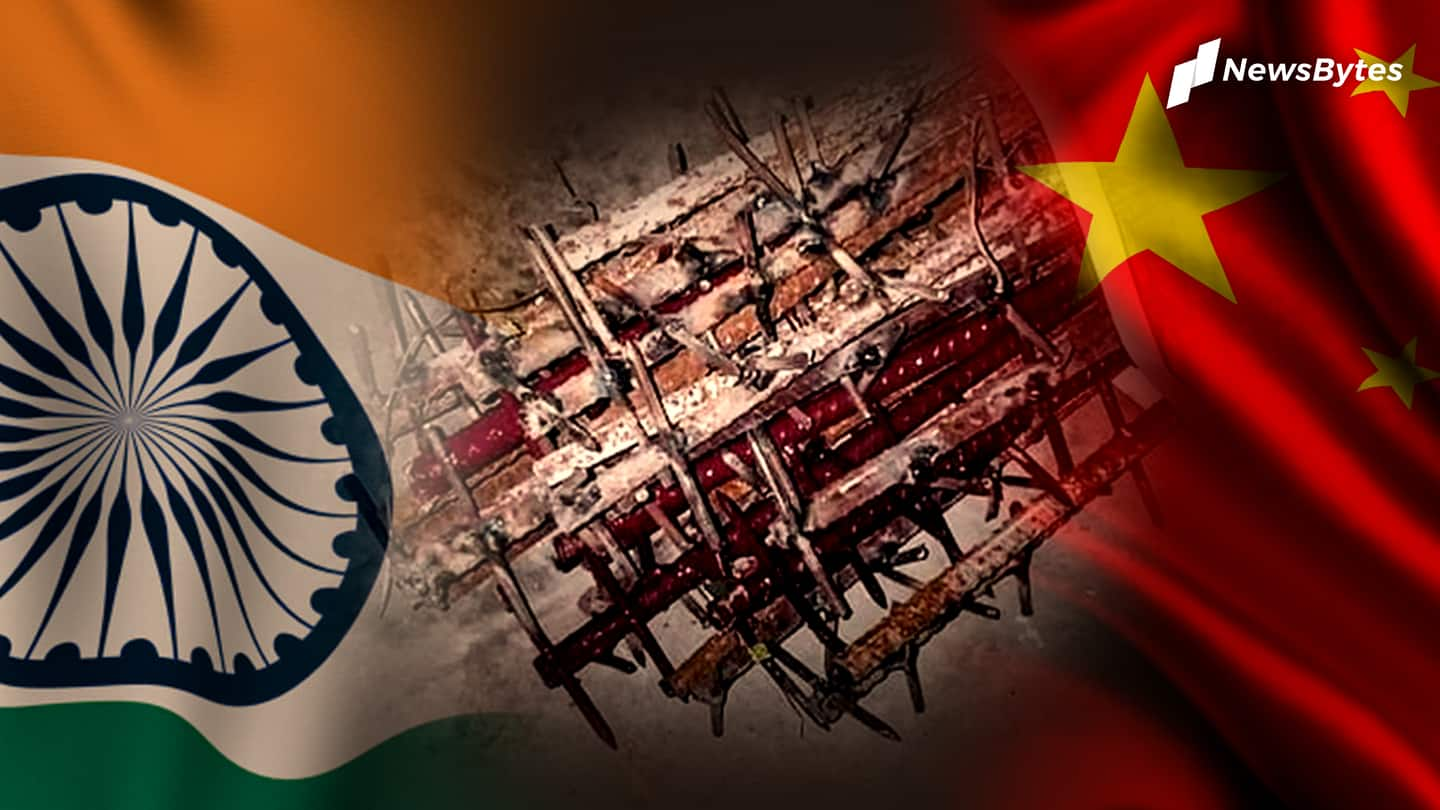
Galwan-clash cost five soldiers, claims China; India says number higher
What's the story
For the first time since the bloody June episode in Galwan Valley, China admitted its casualties, saying that five of its soldiers died. However, India is convinced the death toll is higher, with government sources telling News18 that China's count must be multiplied by three.
India's assessment hints that the People's Liberation Army lost 15 soldiers in hand-to-hand combat.
Here are more details.
Context
Recap: For the first time in decades, LAC saw bloodshed
The clash near Galwan river, 15,000 feet high in the Himalayas, was sparked after PLA showed reluctance in retreating to its original posts, despite the consensus reached during military-level talks at the time.
Armed with rods and rocks, PLA soldiers attacked Indian troops, resulting in the martyrdom of 20 soldiers, including a Commanding Officer.
China also suffered casualties but didn't acknowledge the same.
Talks
India and China talked to ease tensions; Beijing accepted casualties
After the clash, multiple talks happened to ward off tensions between the nuclear-armed neighbors.
At the recent dialogue with India at Moldo, earlier this week, China admitted, for the first time in months, that its soldiers also died. Earlier, reports said China lost a Commanding Officer as well.
On China's figures, a top source told, "When the Chinese say five, multiply it by three."
Moldo talks
At Moldo, both India and China didn't blink
The dialogue at Moldo was unprecedented as for the first time, a senior foreign ministry official was part of the Lieutenant General-level talks.
During the 14-hour-long diplomatic-military talks, India maintained that talks for disengagement should include all friction areas, including Depsang.
However, China was adamant, indicating that it would not consider disengagement until India vacates strategic points at the Pangong Lake's Southern Bank.
Message
Talks are on, China shouldn't try changing status quo: India
On Thursday, the Foreign Ministry warned China against unilaterally changing the situation on the ground.
"The way ahead will be to refrain from making any attempts to unilaterally change the status quo, while the two sides continue their discussions to achieve complete disengagement in all friction areas and to ensure full restoration of peace and tranquility in the border areas," the Ministry said.
Tensions
China is engaged in defying rules since Doklam stand-off: Report
While the tensions flared between India and China since April-May over New Delhi's infrastructure push, a government official told News18 that Beijing had been engaged in transgressions since the 2017 Doklam stand-off.
Defying the norm of sending 15-20 soldiers for patrol, China started deploying patrol parties having 50-100 men, the person added.
Despite China's attempt at intimidation, India didn't dump patrolling or infrastructure projects.
Quote
Disrespecting agreed protocol, PLA tried waylaying India's patrolling parties
"After 2017, the Chinese disregarded the mutually agreed protocol of having no more than 20 men in one patrol party. Sure enough, these bigger Chinese patrols started physically intimidating our patrols. Many ended in scuffles," the person explained.
What happened
As coronavirus fears worried Army, China indulged in nefarious activities
The official also said that when China started amassing troops along LAC in April, the Indian Army was busy ensuring that coronavirus doesn't spread in its ranks.
The annual exercise in Ladakh was canceled, giving PLA an upper hand.
"We thought they have come and like every year they will go back. How were we to know that they had no intentions of going back," the person said.
Statement
Situation unprecedented, dialogue necessary: S Jaishankar
On Thursday, Foreign Minister S Jaishankar called the border situation "unprecedented," adding that both countries have to sit across a table and resolve differences.
"Where India and China are concerned, it is important that they understand the need to accommodate each others' rise. Clearly, they will have some common interests and many interests that are more individual or nationally centered," Jaishankar stressed.